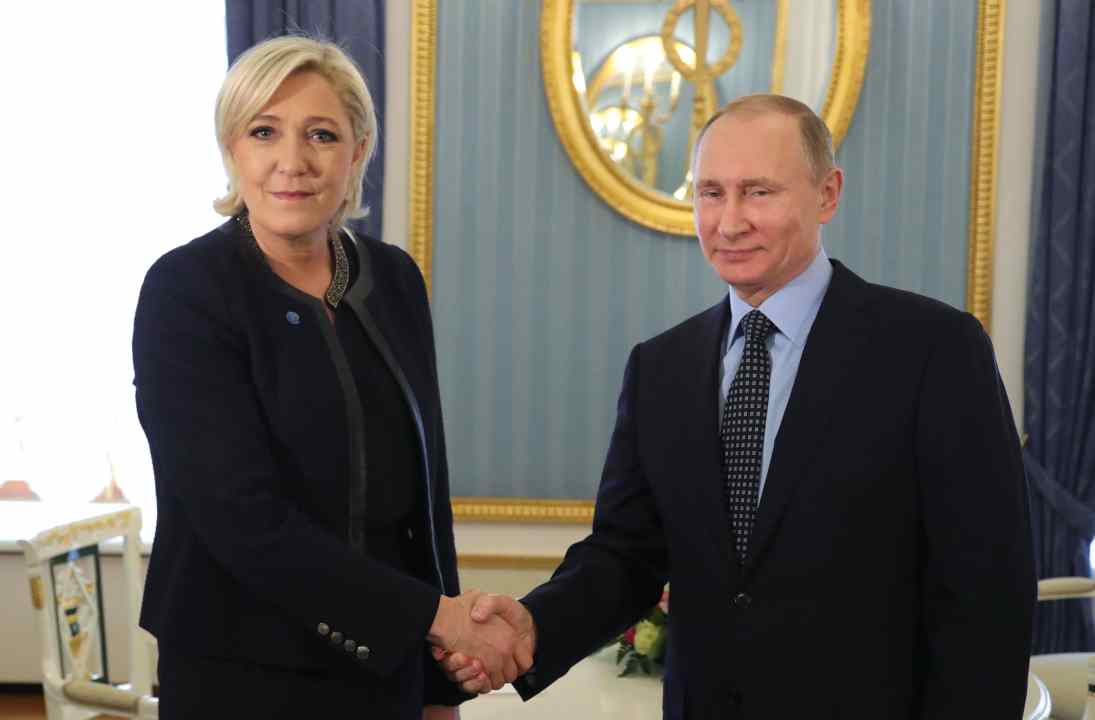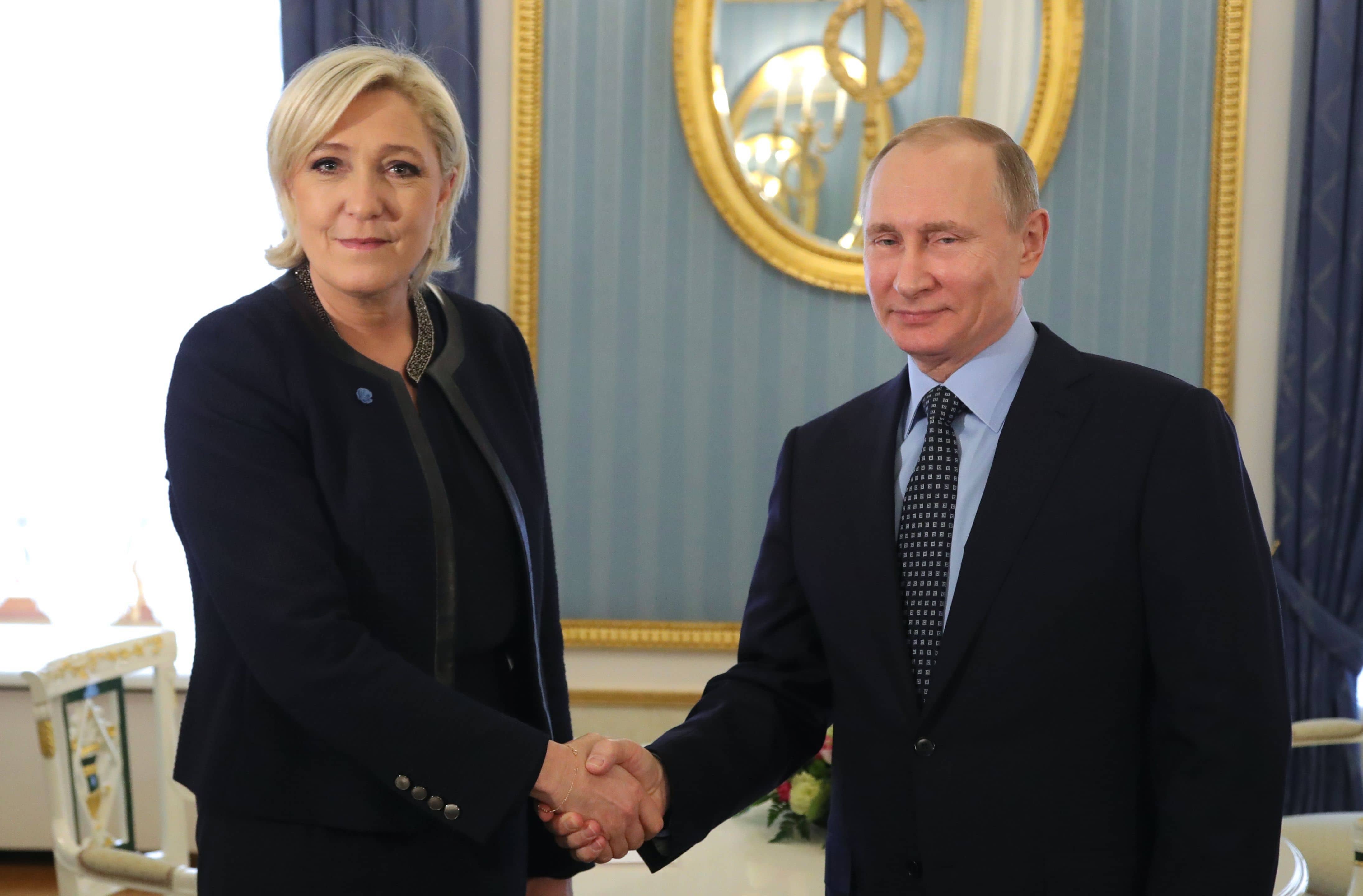Paris, France
Marine Le Pen has changed her image. Five years ago, the veteran far-right leader lost her second bid for the French presidency to a virtual newcomer, Emmanuel Macron, who swept into office with two-thirds of the vote. This time, she has assured her anxious supporters that things will be different.
She has retired her policy of pulling out of the EU, calling instead for it to transform into a federation of sovereign states. She has also sought to assuage fears she would bring back the Franc. Gone too are calls to end all immigration to France – legal and illegal – preferring instead a comparatively more mellow line about how open borders are causing ‘anarchy‘. Online, she has posted a steady stream of pictures with her six pet cats, pushing a softer, fluffier image than she inherited from her Holocaust-denying father, Jean-Marie Le Pen, the founder of the party she now leads.
Le Pen defines French interests differently from Macron
There is, however, one association that the aspiring president is struggling to shake off: her longstanding ties to Russia. ‘This is now the world of Vladimir Putin,’ she declared after a visit to Moscow in 2014. If elected, she said at the time, she would contemplate scrapping the EU sanctions imposed on the country over its annexation of Crimea. ‘The policies I represent are the policies represented by Mr Trump. They’re represented by Mr Putin,’ she added just two years later, claiming Russia was ‘going broadly in the right direction’.
Now, it seems the mood has changed. In a poll published last month by the IFOP research agency, 88 per cent of the French voters said they were worried about Putin’s brutal war in Ukraine, with one in three saying that it would impact their vote in Sunday’s presidential elections.
Other candidates that had previously sounded sympathetic to Russia quickly backtracked. Jean-Luc Mélenchon, who missed out on a place in the second round by just 1 per cent, was among them. A long-time critic of Nato who had previously characterised Ukraine as a country run by the far-right, he initially equivocated about whether the West was partly to blame for the war. But, facing massive public support for Kyiv, he announced earlier this month that he believes Putin bears ‘the entire responsibility’.
Le Pen’s response has been more ambiguous. Earlier in the campaign she was forced to pulp hundreds of thousands of leaflets as they showed her shaking the hand of the Russian President. On Wednesday night, during the head to head debate, Macron slated her for having accepted loans from a Moscow bank. ‘You depend on Mr. Putin,’ he said, ‘when you talk to Russia, you’re not speaking with a foreign leader – you’re talking with your banker’. According to him, this makes his challenger incapable of ‘defending French interests’.
Le Pen, though, defines French interests differently from Macron. While the French President has helped lead the charge in Brussels for punitive measures against Moscow, she has argued that embargoes on energy imports are self-defeating and that Paris should seek a rapprochement with Russia. ‘I do not want French people to suffer the consequences of sanctions,’ she insists.
That focus on economic self-interest is likely to resonate with the same working-class voters who backed Mélenchon’s radical left-wing solutions. Even though he has publicly told his supporters not to vote for the far-right, there are predictions that as many as a third could already be switching to Le Pen, favouring anti-establishment rhetoric over centrism. ‘Macron is off playing Emperor of Europe while we’re all here struggling to pay our bills, that’s what people think,’ Emilie, a digital marketing worker in the hyper-marginal city of Lille said. ‘Most people don’t understand why they should be poor because of what’s happening with Russia.’
That line is one that has been beamed out by both Le Pen’s campaign in recent weeks, as well as by Russian state media. Dr Ian Garner, a historian researching Soviet propaganda, says that this fits a wider pattern: ‘the Kremlin’s message since sanctions were announced is that sanctions would come back to bite the West, and that you need us more than we need you.’
There is little doubt that a victory for Le Pen would be seen as a huge win in Russia. It would feed the narrative that Europe can’t live without Russia and it would also stoke further division within Europe itself. In a rare intervention on Thursday, German Chancellor Olaf Scholz wrote that ‘the choice French people are facing is critical… It is the choice between a democratic candidate, who believes that France grows in a powerful EU. And a far-right candidate who openly sides with those attacking our freedom and democracy.’
Le Pen has campaigned on the basis that she would shake up France’s neoliberal consensus, appealing to those who feel they have little to lose. It is clear, though, that western leaders are also rattled by the prospect, and that it could be the Ukrainian people, desperate for arms and diplomatic support, who shoulder the cost of their discontent.








Comments